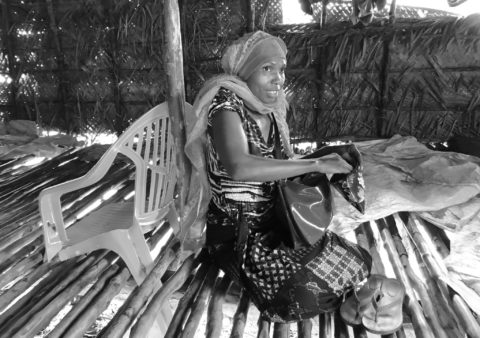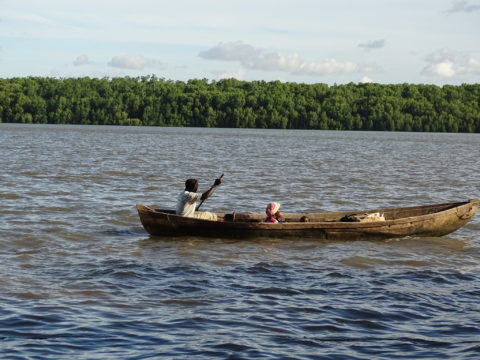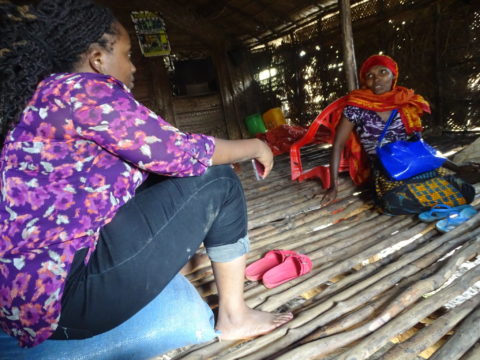
Maimuna and the mangroves
-
Aquaculture, fisheries and coastal agriculture
-
Coastal resilience
-
Coastal wetland conservation
The connections between women and wetlands, and the role they play in conservation cannot be ignored. But then, how important is it? To look for the answer, we take a trip to Mchinga village through the calm waters and majestic mangrove forests of the northern Rufiji Delta in Tanzania. It is one of the 19 villages in the Delta. Here, like many places in Africa decision making is left to the men while it is women who interact with the mangrove ecosystem the most.
There, we meet 39-year old Maimuna Ramadhani, boiling water to make salt for domestic use. She has been living in the delta throughout her whole life. As we walk side by side while collecting dried mangrove sticks, that she will use to prepare meal for her family that evening, we notice a small boat approaching the island. Women run to the shore to receive the occupants of the boat. She says that they left earlier that morning to go fishing into the deep sea and around the delta in search for fish for commercial and domestic consumption. Suddenly, with a grim look on her face, Maimuna laments over the dwindling number of fish in the area for which she blames the destruction of mangroves. “The trees are harvested without replanting and now even when there is a high tide, it floods our homes,” she says. “Why don’t you do something about it?” we ask. “Because it is not my place to do so,” she says.

We later visit her rice farm which is about 800 meters from her home. There she excitedly tells us how this land has improved her livelihood and helped her family financially. When we ask why they cut the mangroves in the area, she says “It was needed to expand the rice farms.”
Maimuna’s village relies heavily on the mangroves for their medicinal value. Maimuna tells us that ashes, leaves or bark infusions of certain species of mangroves are usually applied to cure skin diseases, stings, headaches, snake bites among others. Rufiji is a mangrove hub with a rich biodiversity and is indispensable for the community living here. Despite the huge value of mangroves in the Rufiji delta, they are being heavily exploited. Some of the causes of mangrove loss and degradation range from reclaiming land for rice production and over-exploitation for poles and timber, in part because there are few alternative income sources. The problems are made worse by the effects of human-induced climate change like rising sea levels and increasing water temperature.

At the end of our visit, Maimuna adds “I want my children to grow in wisdom and value the wealth we receive from mangroves. I would love to go back in time and show them how it used to be but I don’t have the power.” Our conversation with Maimuna illustrates problem that the people of this community are faced with, there is an understanding and a wish to restore the mangrove forests, but at the same time a need to solve the immediate requirements for food and income.

That’s why, raising awareness among both men and women about their roles in wise use of mangrove resources, is one of the top priorities of the Mangrove Capital Africa programme. Through a series of meetings and training, where communities come together to identify problems, solutions and alternative sources of livelihood, the programme seeks to reduce the pressure on the mangrove resources. The programme encourages mixed gender decision-making and activities so that women, like Maimuna, can voice their thoughts and actively participate in decisions towards wise use of their shared resources.
Mangrove Capital Africa is a 10-year programme whose vision is: Mangroves and their biodiversity are healthy, improving the livelihoods of millions of people and protecting them against the dangers of climate change and targets the coasts of East and West Africa. Mangrove Capital Africa programme led by Wetlands International and funded by DOB Ecology.
